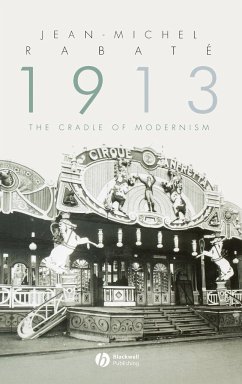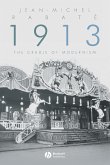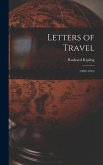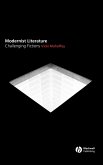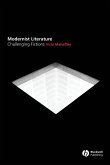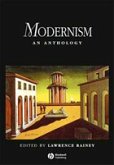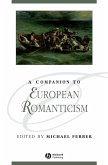This innovative volume puts modernist literature in its cultural, intellectual, and global context, within the framework of the year 1913. This significant year was marked by many critical events and happenings, such as the first international recognition of non-Western writers when the Nobel Prize in literature was awarded to Rabindranath Tagore; it was also the last year of peace before the eruption of the First World War. 1913 examines the wide range of diverse artistic, literary, and political endeavours undertaken in this one year. For example, while Yeats and Pound were collaborating at Stone Cottage and discovering Japanese culture, Joyce was completing his autobiographical novel in Trieste, Du Bois was creating his Ethiopian pageant in New York, and Paris was resounding with the scandal caused by Stravinsky's contested Rite of Spring. The book also explores and compares Apollinaire's Alcools and Rilke's Spanish Trilogy with Pound's Personae, and Edith Wharton's The Custom of the Country with Proust's Swann's Way. Engaging and insightful, this volume will encourage the reader to appreciate the breadth of activity that took place in this pivotal year, and its lasting influence.
Hinweis: Dieser Artikel kann nur an eine deutsche Lieferadresse ausgeliefert werden.
Hinweis: Dieser Artikel kann nur an eine deutsche Lieferadresse ausgeliefert werden.
"While reading Rabatk's book I constantly had in mind TheodorAdorno's remark to Walter Benjamin about the latter's habit of'occult adjacentism'. Adorno, of course, meant this as adamning criticism of his friend's method in the Arcadesproject, but it beautifully describes the effect of 1913 and itskaleidoscopic presentation of a world thattroublingly-uncannily-intimates our own." (MLR, April2009)
"Rabate offers scholars and students a new portrait ofcosmopolitan modernism to contemplate, making a study ofglobalization central to his understanding of the period'sliterary and artistic endeavors." (The Review of EnglishStudies, June 2009)
"This book's clarity and specificity will rewardeven readers familiar with his topics. Summing Up: Highlyrecommended."(Choice)"With this book Jean-Michel Rabaté, one of the foremostscholars of literary modernism, serves up a sumptuous intellectualfeast. Examining the currents of thought and creative activity thatchurn through a single year, the 1913 of his title, he achieves anepic overview of early modernism. Music, painting, technology,science, philosophy, mathematics, literature, sexuality--nothingescapes his probing gaze. Telling anecdotes, insightful criticism,and philosophical rigour are combined to produce a work that isboth a pleasure to read and a major scholarly synthesis."
-Lawrence Rainey, University of York
"Rabate offers scholars and students a new portrait ofcosmopolitan modernism to contemplate, making a study ofglobalization central to his understanding of the period'sliterary and artistic endeavors." (The Review of EnglishStudies, June 2009)
"This book's clarity and specificity will rewardeven readers familiar with his topics. Summing Up: Highlyrecommended."(Choice)"With this book Jean-Michel Rabaté, one of the foremostscholars of literary modernism, serves up a sumptuous intellectualfeast. Examining the currents of thought and creative activity thatchurn through a single year, the 1913 of his title, he achieves anepic overview of early modernism. Music, painting, technology,science, philosophy, mathematics, literature, sexuality--nothingescapes his probing gaze. Telling anecdotes, insightful criticism,and philosophical rigour are combined to produce a work that isboth a pleasure to read and a major scholarly synthesis."
-Lawrence Rainey, University of York

